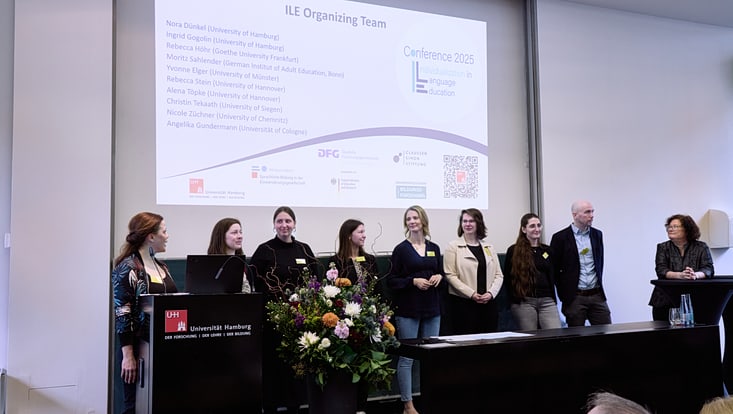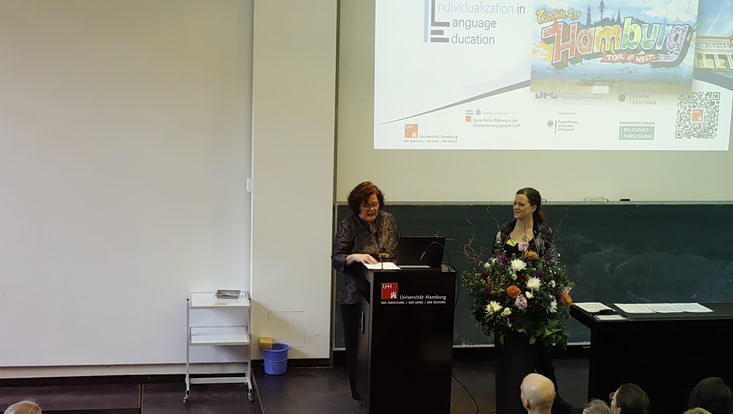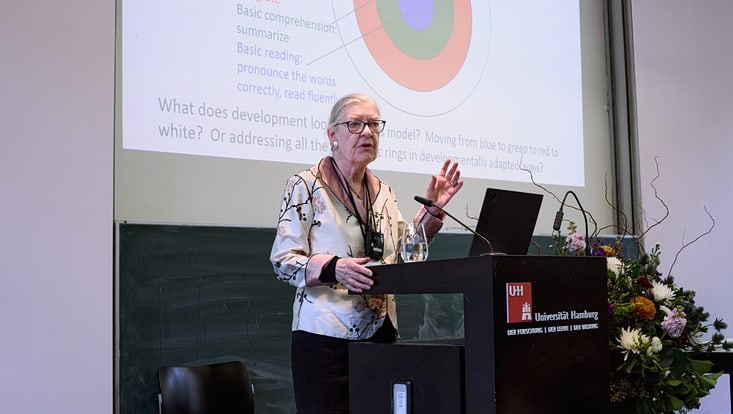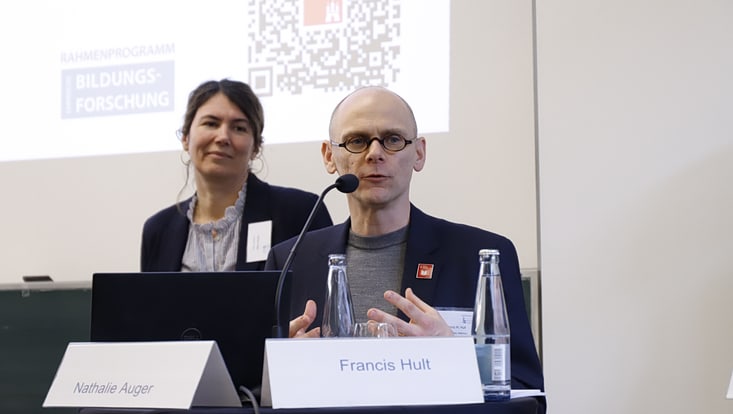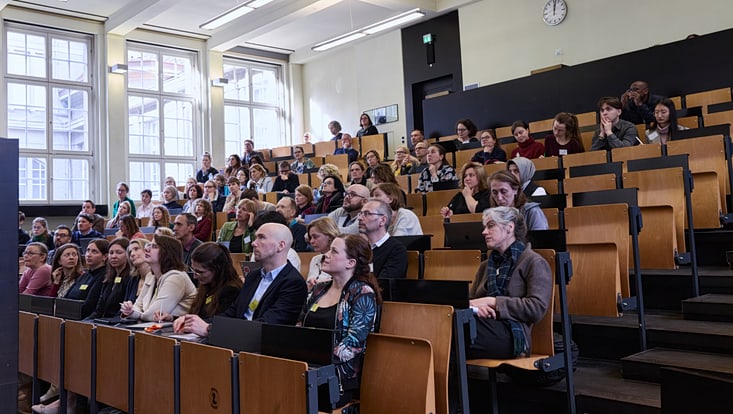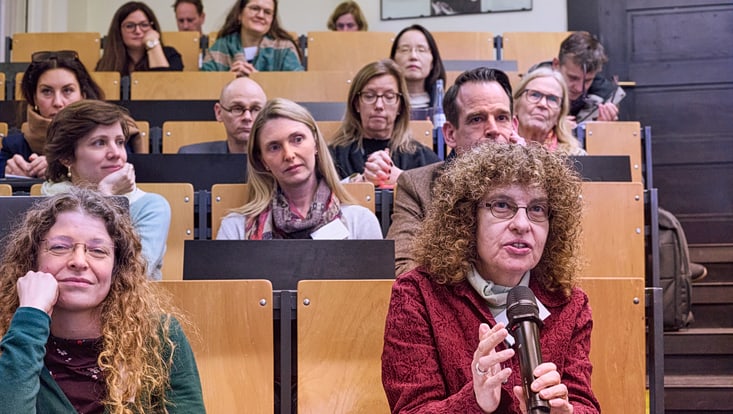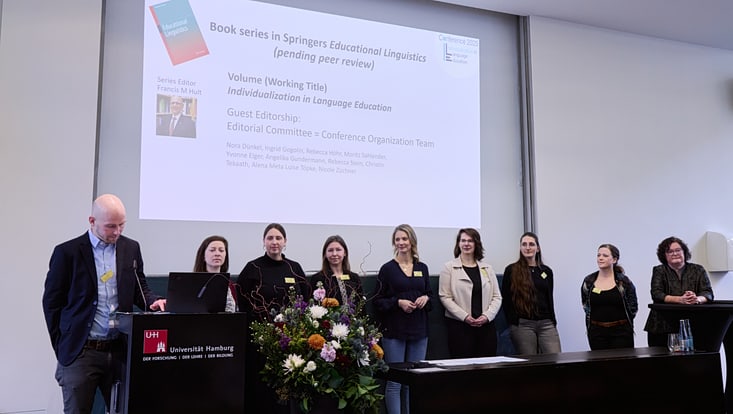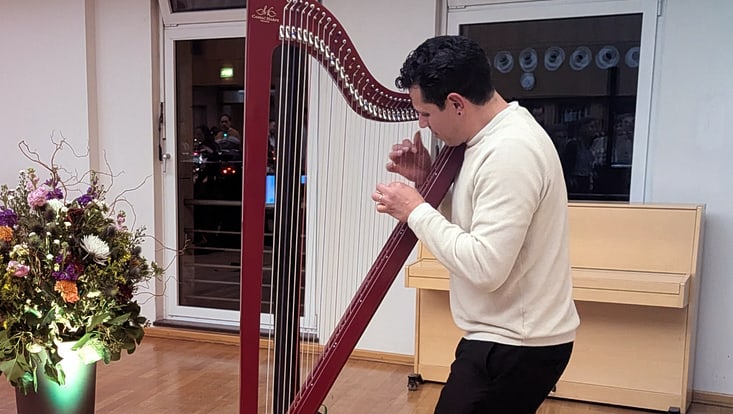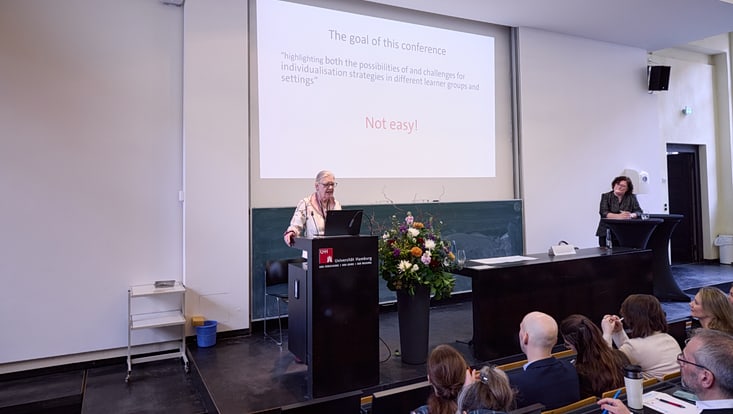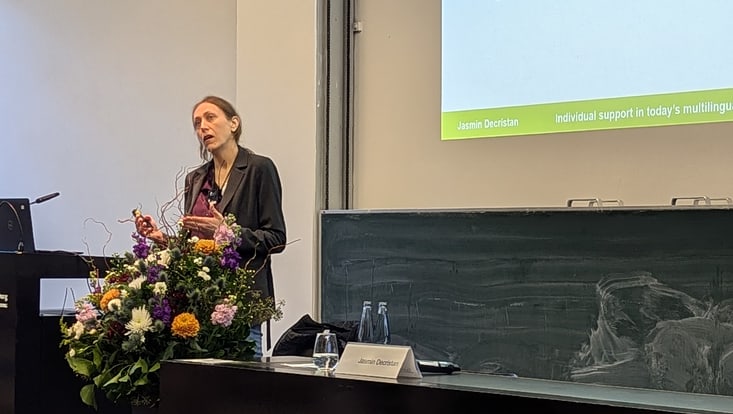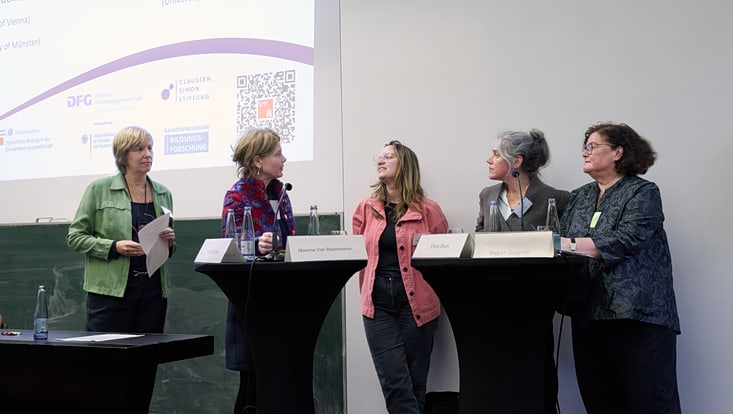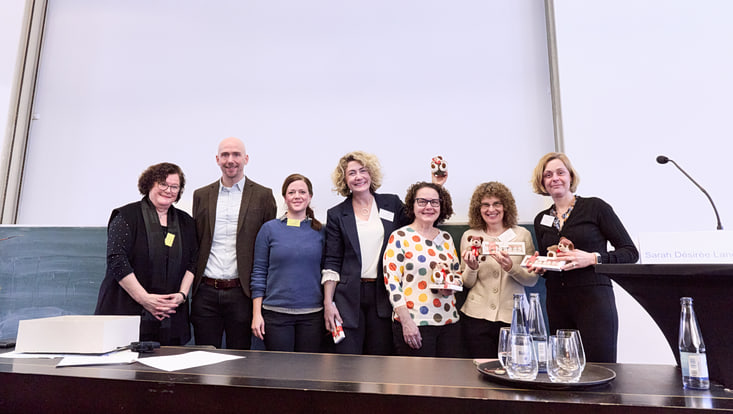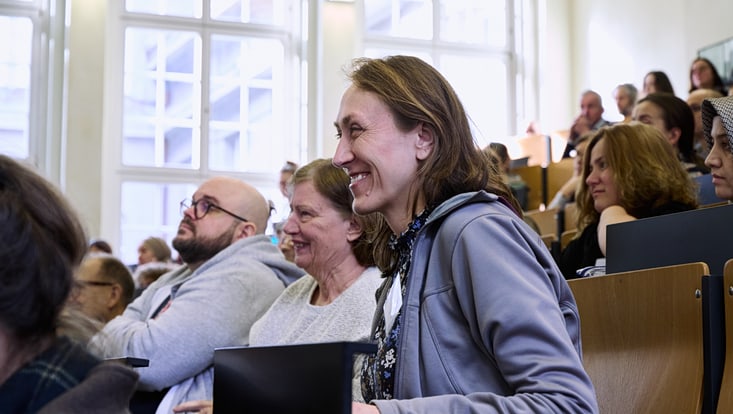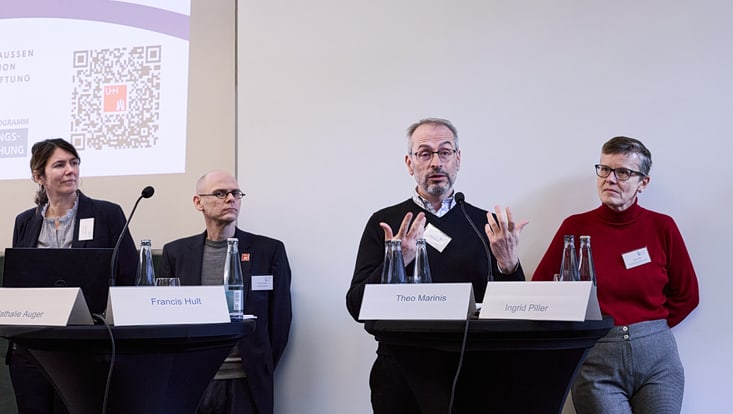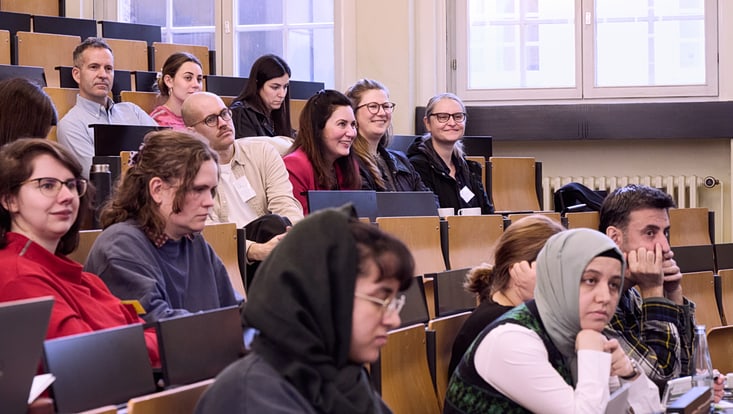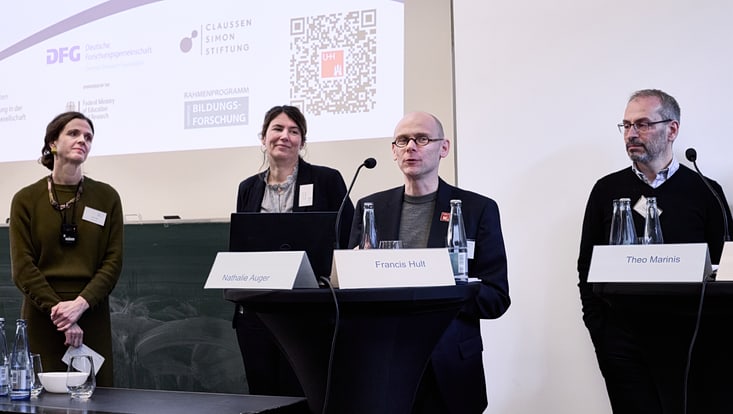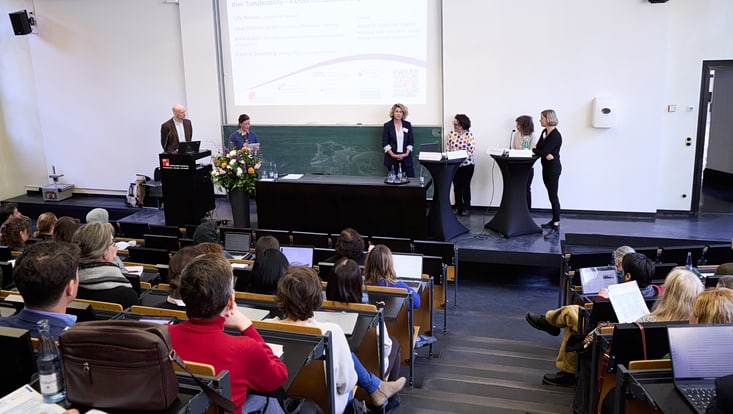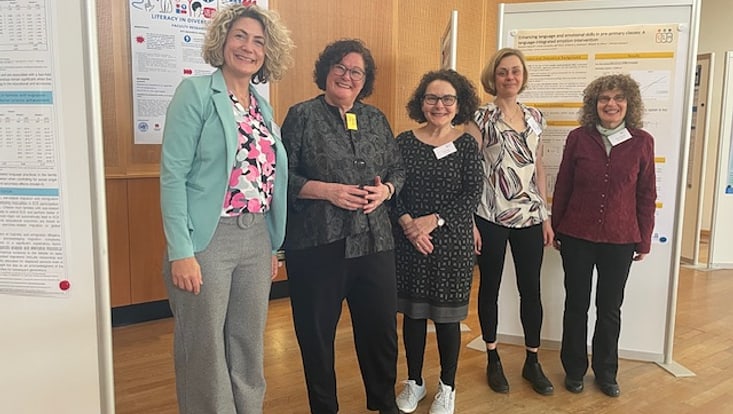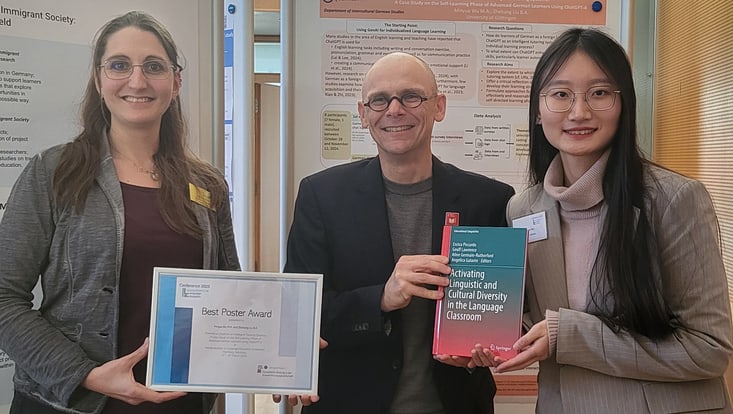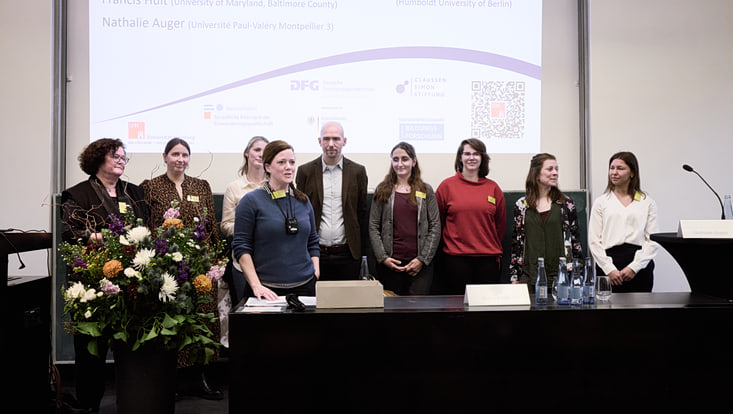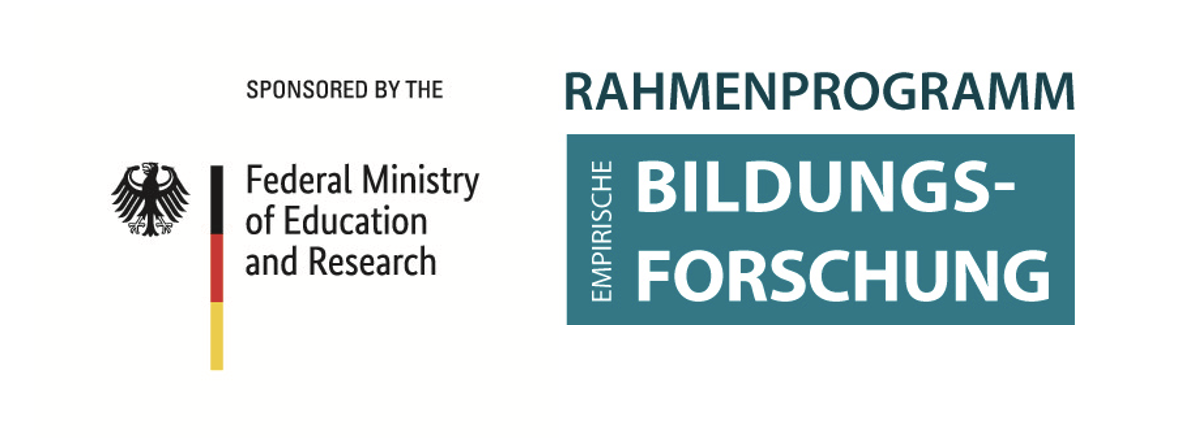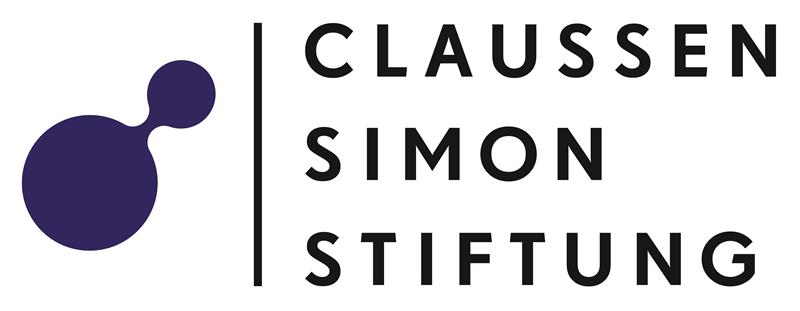Individualisierung in der sprachlichen Bildung Tagung 2025
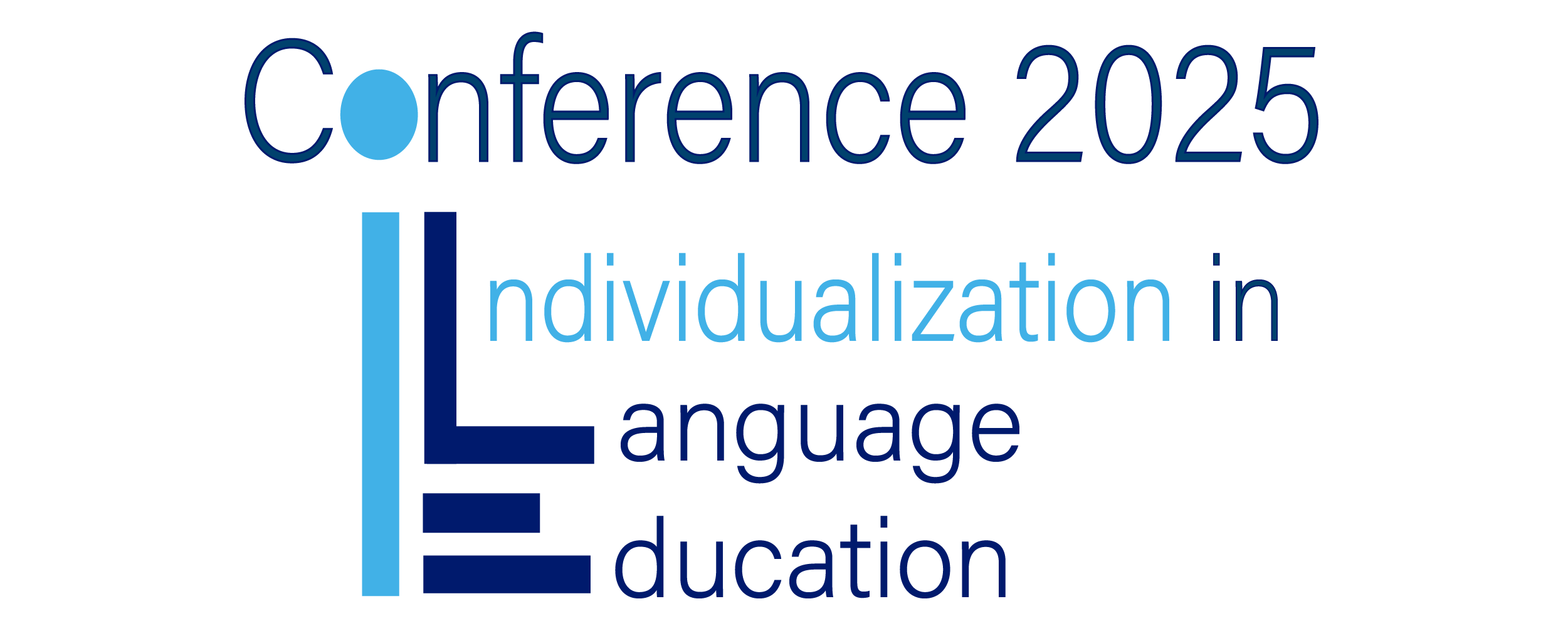
5. - 6. März 2025
Universität Hamburg, Deutschland
The international conference "Individualization in Language Education" successfully took place on March 5-6, 2025, at the University of Hamburg, bringing together over 100 researchers from across the globe. By systematically addressing Individualization in Language Education, both the possibilities of and challenges for individualization strategies in different learner groups and settings were discussed. The conference was organized by an interdisciplinary network representing the research cluster “Language Education in the Immigration Society”, which is financed by the German Federal Ministry of Education and Research (BMBF).
We thank all speakers and participants for their valuable contributions (see the Book of Abstracts of Paper & Poster Sessions) to the Conference Program to the Conference Program and the discussions, which played a significant role in creating a vibrant atmosphere for sharing ideas and perspectives. We are honored to have received overwhelmingly positive feedback from attendees, reflecting the success of this conference.
A volume of select conference papers will be produced (pending peer review) for the Educational Linguistics books series published by Springer. The call for abstracts can be found below.
Conference Picture Gallery
Conference Highlights
Keynotes
- Classroom discussion as an approach to individualization
by Catherine E. Snow (Harvard)
Prof. Dr. Catherine E. Snow is internationally recognized for her work on theories of bilingualism and language acquisition through parent-child interaction, as well as on linguistic and social factors that promote or impair literacy development in reading and writing. She opened her keynote with the thought-provoking declaration that individualization is "not easy!". She explored the challenges faced by teachers managing diverse classrooms with immigrant and second-language learners. By providing well-studied examples that foreground students’ voices, Dr. Snow emphasized the importance of utilizing classroom discussion strategically to maximize learning opportunities for all students and enhance their oral language skills, which are vital for literacy development.
- Individual support in today’s multilingual classes in German primary school: Findings from an intervention study on translanguaging to support students’ reading strategies
by Jasmin Decristan (Bergische Universität Wuppertal)
Prof. Dr. Jasmin Decristan is head of the department „Schulische Interventionsforschung bei besonderen pädagogischen Bedürfnissen“ [Research on school interventions in case of particular requirements] and conducts research into cooperative learning, dealing with heterogeneity, teaching practice, and its quality. In her presentation, Prof. Dr. Jasmin Decristan discussed the significant cultural and linguistic diversity in modern German classrooms and the importance of translanguaging as a key approach for supporting students’ multilingual resources. She shared findings from her intervention study aimed at enhancing reading strategies among multilingual students, addressing the necessary collaborative space for students to support each other while effectively managing classroom dynamics.
Discussion forums
The conference featured three thematic discussion forums, each providing a platform for leading experts to share their perspectives:
Forum 1: Diagnostics and Professional Competence in the Context of Linguistic Diversity
Speakers: Elma Blom (Universität Utrecht), Maxime Van Raemdonck (Ghent University), Inci Dirim(University of Vienna), Vera Busse (Universität Münster)
Moderation: Karen Schramm (University of Vienna)
Forum 2: Successful Formats of Individualization and Their Transferability – A Cross-Institutional Perspective
Speakers: Julie Kerekes, (University of Toronto), Sarah Désirée Lange (Technische Universität Chemnitz), Anna Krulatz (Norwegian University of Science and Technology, Trondheim), Daphne Greenberg (Georgia State University, Atlanta)
Moderation: Hendrik Stammermann, (Hamburg State Institute for Teacher Training and School Development)
Forum 3: Requirements for Future Research on the Individualization of Language Education
Speakers: Ingrid Piller (Macquarie University, Sydney), Theo Marinis (University of Konstanz), Francis Hult (University of Maryland, Baltimore County); Nathalie Auger (Paul-Valéry Montpellier 3 University)
Moderation: Aileen Edele (Humboldt University Berlin)
The forums encouraged lively discussions, inviting audience participation to explore various critical topics.
Paper Sessions
Paper presentations allowed authors to detail their research questions, designs, and findings in dedicated sessions. The sessions covered a wide range of topics, including inclusive approaches to language learning, individualized teaching and diagnostics, heterogeneity, linguistic diversity and multiliteracy as a resource, social integration and well-being and the exploration of innovative technologies and their implications for teaching and learning. Each presentation was allotted 20 minutes, followed by a 10-minute discussion that fostered rich exchanges of ideas among attendees.
Poster Sessions
Presenters showcased their research visually through posters, promoting interaction during dedicated sessions. This lively format allowed for substantial engagement and networking opportunities for all participants.
A highlight of the poster sessions was the awarding of the Best Poster prize to Minyue Wu, who accepted the award from Francis Hult.
Evening Reception
The first day of the conference concluded with an evening reception where attendees enjoyed
delicious finger foods and drinks in a convivial setting. The ambience was further enhanced by a performance from the talented harpist, Alberto Sanchez, who captivated the audience with his energetic music.
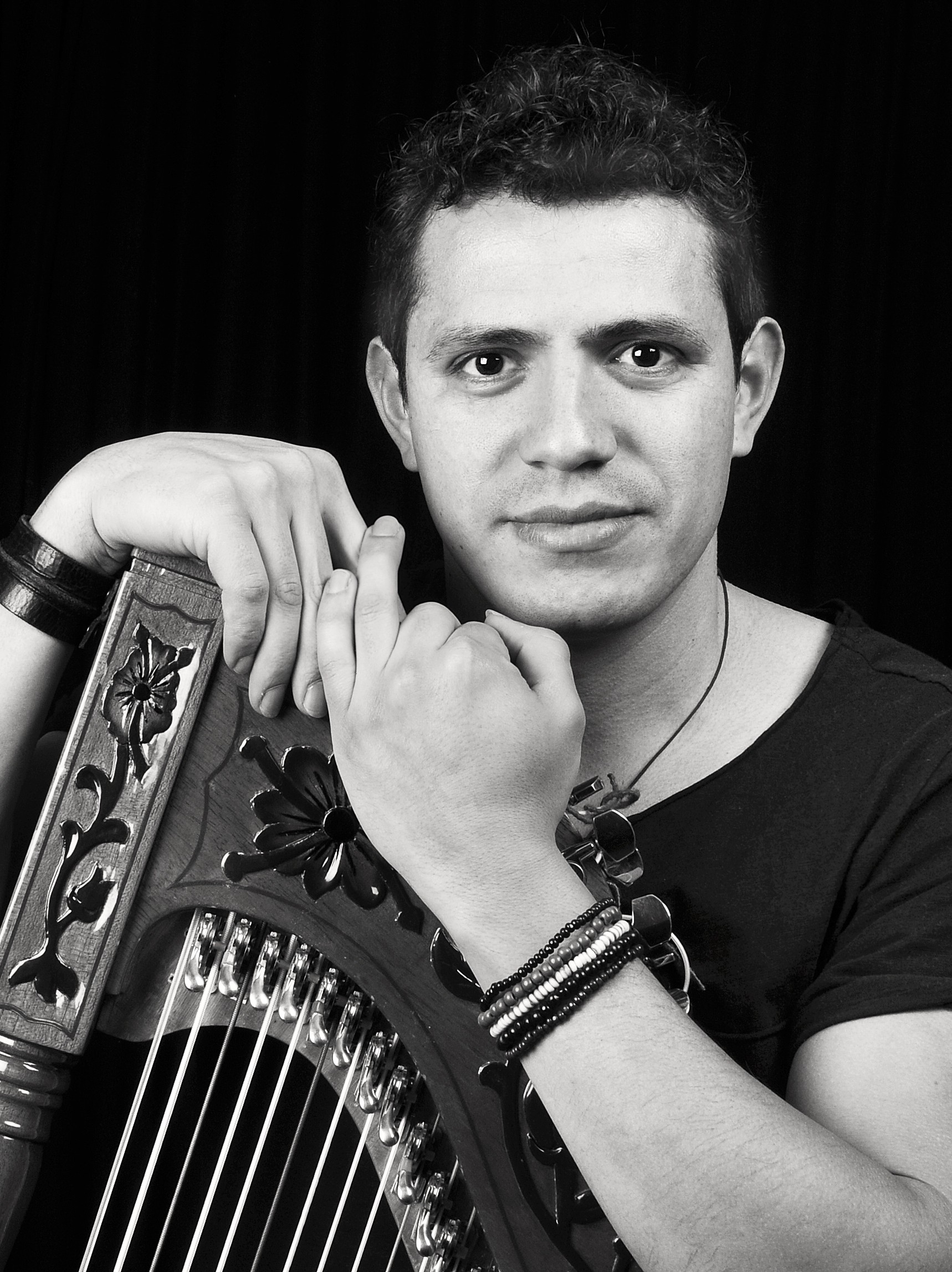 |
Alberto Sanchez from Paraguay is an exceptional talent on his harp! Full of energy and passion, he is able to replace an entire rhythm section. Alberto Sanchez is a winner of the Folklore Oscar, is a member of the band ‘Anna R.’ around the Rosenstolz singer and has recorded the harp tracks for Tabaluga for Peter Maffay in the studio. |
A volume of select conference papers will be produced (pending peer review) for the Educational Linguistics books series published by Springer.
Please find the Call for Abstracts here.
We invite manuscript proposals based on empirical studies that consider the heterogeneity of learners’ language abilities and experiences in individualized/adaptive teaching and learning. These may relate to ways of shaping individualization in language education in formal, informal and non-formal settings, to the professional skills required for individualized teaching and learning, or to the transfer of tried-and-tested concepts to other learner groups or contexts.
Please submit your abstract (600 words excluding references) outlining your proposed chapter by May 13, 2025 to individualization-conf.ew"AT"uni-hamburg.de.
Updated Timeline:
May 13, 2025 – Deadline for Authors to Submit Description of Proposed Contribution
June 8, 2025 – Notification of Acceptance / Rejection of Proposals
February 15, 2026 – Deadline for Submission of Full Manuscripts
Guest Editors:
Nora Dünkel1, Rebecca Höhr2, Moritz Sahlender3, Ingrid Gogolin1
Yvonne Elger4, Angelika Gundermann5, Rebecca Stein6, Christin Tekaath7, Alena Meta Luise Töpke6, Nicole Züchner8
Affiliations: 1University of Hamburg; 2Goethe University Frankfurt; 3German Institut of Adult Education, Bonn; 4University of Münster; 5University of Cologne; 6Leibniz University Hannover; 7University of Siegen; 8Chemnitz University of Technology
Organisationsteam:
Nora Dünkel, University of Hamburg
Ingrid Gogolin, University of Hamburg
Rebecca Höhr, Goethe University Frankfurt
Moritz Sahlender, German Institut of Adult Education, Bonn
Christin Büning, University of Siegen;
Yvonne Elger, University of Münster;
Angelika Gundermann, University of Cologne;
Rebecca Stein, Leibniz University Hannover;
Alena Töpke, Leibniz University Hannover;
Nicole Züchner, University of Technology Chemnitz

